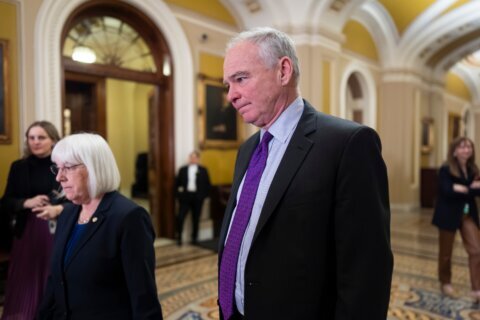WASHINGTON — Sen. Jeff Flake, R-AZ, pressed on Wednesday to get a floor vote on bipartisan legislation that would protect special counsel Robert Mueller’s Russia probe, but the effort failed to move forward after Senate Majority Leader Mitch McConnell objected to the request.
Flake and other lawmakers are concerned about the future of the investigation, following the ouster of Attorney General Sessions. Sessions’ temporary successor, acting Attorney General Matthew Whitaker, has been critical of the Mueller probe.
“With the firing of the attorney general, and in my view, the improper installation of an acting attorney general who has not been subject to confirmation by this body, the president now has this investigation in his sights and we all know it,” Flake said in a Senate floor speech.
President Trump has repeatedly called the investigation into Russian meddling in the 2016 election a “witch hunt.”
McConnell said on Wednesday that he saw no reason to press ahead with legislation to protect Mueller from being fired. He told reporters that while the president has been critical of the investigation, there has been no attempt by the White House to stop it.
“I think it’s in no danger and so I don’t think any legislation’s necessary,” McConnell said.
Flake, who sits on the Senate Judiciary Committee, said he plans to oppose the president’s dozens of judicial nominees until a vote is taken on the measure. The committee had approved the protective legislation earlier this year.
Flake’s disappointment was shared on the floor by another co-sponsor of the legislation, Sen. Chris Coons, D-DE.
“Our president is now in a position easily to interfere with, or even end, the Mueller investigation,” Coons said.
Flake and Coons had urged debate on the measure to move ahead, seeking unanimous consent to bring up the bill for a vote. But McConnell’s objection put a halt to that on Wednesday.
Senate and House leaders have suggested they may tie up spending bills if the legislation to protect Mueller doesn’t get a vote, but it’s unclear what will happen next. If lawmakers don’t go along with spending plans ahead of a Dec. 7 deadline, that could raise the specter of a partial government shutdown.
But lawmakers from both parties have sought to tamp down discussion of a shutdown, which could also come about if the president holds firm on earlier demands for fully funding a border wall.







